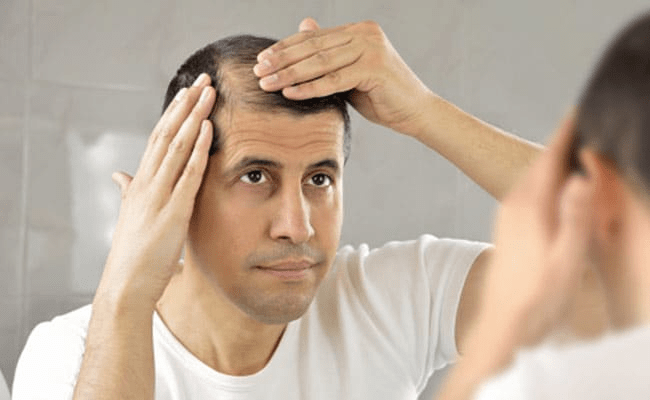The Definitive Guide to Understanding Diabetes-Related Hair Loss
Diabetes is a complex condition that influences various aspects of health, from blood sugar management to the health of our cardiovascular system. Many would be surprised to learn that diabetes can also affect hair loss. In this comprehensive post, we delve into how diabetes and hair loss are connected, unraveling the scientific evidence and providing insights that can be valuable for both diabetes patients and those interested in hair health.

- The Effect of Diabetes on Hair Loss -
Understanding the How
Both type 1 and type 2 diabetes have been linked to hair loss, but understanding the mechanism behind this link is essential. Diabetes can affect hair at various stages of growth, leading to hair thinning and shedding.
Who's at Risk?
Both men and women who have diabetes are at risk of experiencing hair loss. For men, diabetes-related hair loss may look similar to male-pattern baldness, whereas women with diabetes may experience overall thinning of hair without a specific pattern.
The Role of Blood Sugar
High blood sugar levels, which are characteristic of diabetes, are thought to be a significant factor in hair loss. It is believed that high blood sugar can damage capillaries that supply blood to the hair follicles, which can lead to hair loss and inhibited hair growth.
- Risks and Complications -
The Psychological Impact
Hair loss can have a profound impact on a person's self-esteem and mental well-being. For individuals already managing the complexities of diabetes, dealing with hair loss can add an extra layer of stress and emotional burden.
Early Warning Sign of Complications
In some cases, hair loss can be an early indicator of certain diabetes complications, such as poor blood circulation or imbalances in insulin. Paying attention to hair health can provide valuable insights into the overall effectiveness of diabetes management.
- Managing Hair Loss with Diabetes -
Diet and Nutrition
Ensuring you get adequate protein, vitamins, and minerals is particularly important to a hair healthy diet and management of diaebtes.
Medication and Treatments
Various over-the-counter and prescription treatments are available for managing hair loss. It's important to consult with healthcare providers to find the most suitable options, ensuring they do not interfere with diabetes medications or exacerbate your condition.
Lifestyle Adjustments
Simple lifestyle changes, such as improving your stress management techniques, getting regular exercise, and quitting smoking, can also positively impact both diabetes and hair loss.
- Hair Loss and Diabetes Going Forward -
Current Research and The Road Ahead
As our understanding of diabetes and its far-reaching effects grows, the medical community continues to conduct research on diabetes-related hair loss. New insights could lead to more effective prevention and treatment strategies.
The Potential of Stem Cell Therapy
The future impact of stem cell therapy is thought to be very promising for hair loss treatment. While still in the experimental phase for diabetes-related hair loss, it could offer a novel approach to regrowing hair.
- Conclusion: Moving Forward with Knowledge -
Embracing a Holistic Approach
The connection between diabetes and hair loss highlights the importance of taking a holistic approach to health. By actively managing your diabetes and engaging in supportive hair care practices, you can positively influence both aspects of your wellbeing.
Help and Support are Available
People who suffer from diabetes-related hair loss have resources available to them such as support groups and healthcare providers.
With this detailed understanding of the impact of diabetes on hair loss, individuals living with diabetes can be more proactive in managing this particular aspect of their health. By combining this knowledge with an ongoing commitment to comprehensive diabetes management, patients can not only prevent further hair loss but also potentially stimulate new hair growth.
